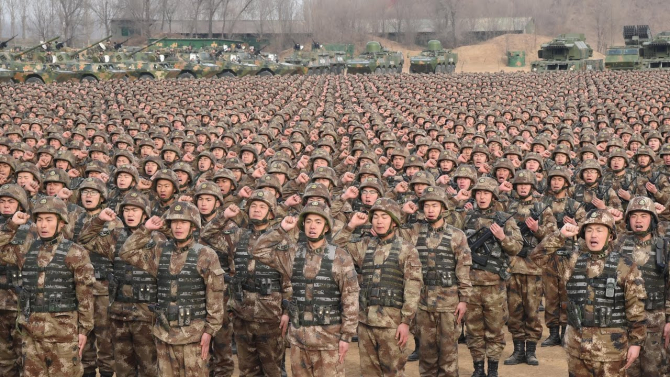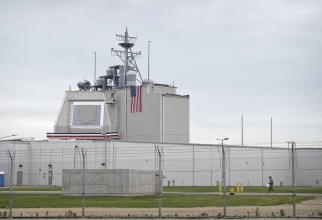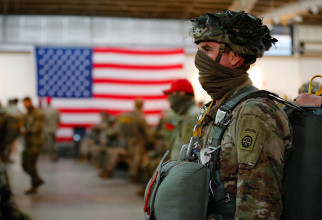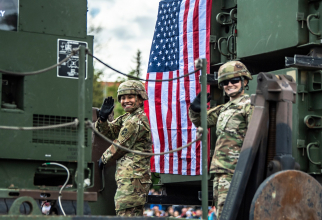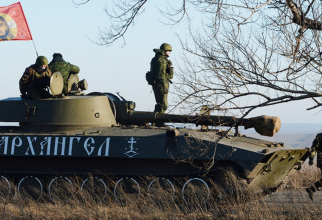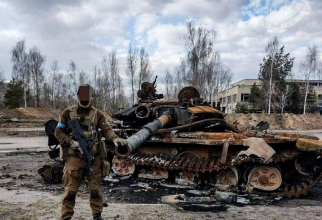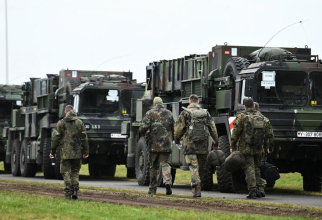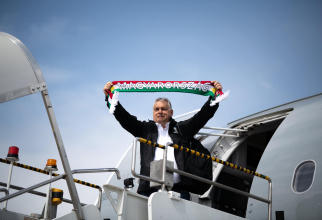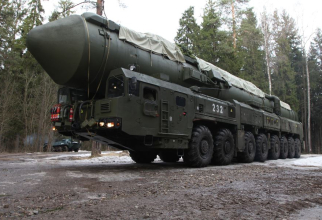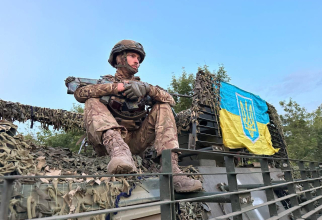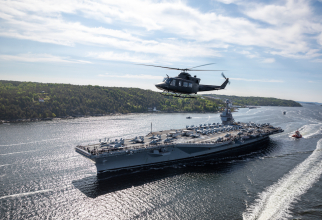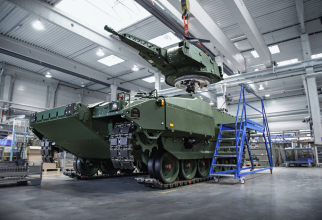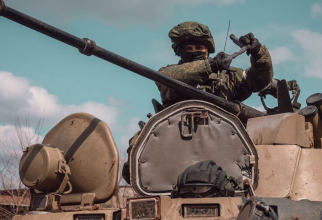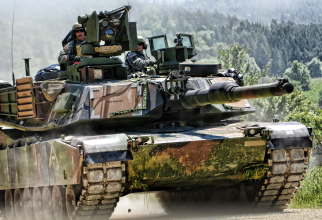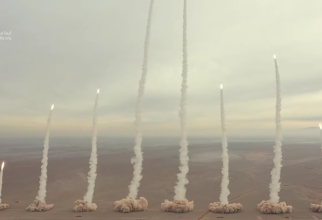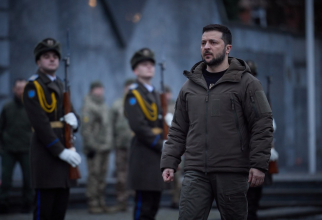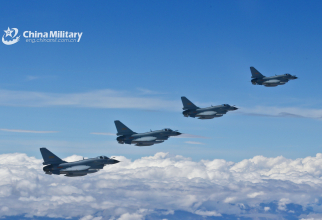Cunoscutul profesor britanic Julian Lindley-French, de la Institute for Statecraft din Londra (UK) publică un nou articol incitant despre echilibrul strategic din Asia. Politologul analizează echilibrele sensibile din continentul asiatic prin prisma unei situatii similare de la inceptul secolul XX din continentul European. Există o Serbia în Asia, se întreabă retoric, Julian Lindley-French, aducând argumente pentru răspunsul său. O analiză extrem de interesantă pentru cititorii DefenseRomania.
“I said to the German Ambassador that, as long as there was only a dispute between Austria and Serbia alone, I did not feel entitled to intervene, but that, directly it was a matter between Austria and Russia, it became a question of the peace of Europe, which concerned us all”.
Sir Edward Grey, British Foreign Secretary, 1914
A trilogy of tensions
Alphen, Netherlands. 5 March. Is there a new Serbia in Asia? Three seemingly unrelated but potentially critical events took place in Asia this past week, the world’s new cockpit of Realpolitik. First, south Asia’s two nuclear powers, India and Pakistan, exchanged fire and fatalities over disputed Jammu-Kashmir. Second, the second nuclear disarmament for sanctions relief summit between US President Donald J. Trump and North Korean Supreme Leader Kim Jung-un collapsed. Third, on Friday last, US Secretary of State Mike Pompeo assured the Philippines that if Manila’s forces were attacked in the South China Sea American forces would come to their aid under the 1951 US-Philippines Mutual Defence Treaty.
The dispute over the status of Jammu-Kashmir is not merely between India and Pakistan. China also occupies part of Kashmir following its victory in the 1962 Sino-Indian War and the establishment of a so-called Line of Actual Control. China also acts as the benefactor and de facto guarantor of Pakistan. Since independence from Britain in 1947 and partition India and Pakistan have fought four wars in 1947, 1965, 1971 and 1999. Relations between the two powers remains tense, even if on this occasion both Islamabad and New Delhi seem to have chosen to de-escalate the crisis. However, given New Delhi’s concerns about what it regards as terrorist training camps in Pakistani-held territory the threat of war remains.
The implications of the failure of the US-North Korean summit in Hanoi are yet to be understood. The distance between the two sides was evident. Pyongyang appeared to want complete sanction relief for partial disarmament. The Americans would only offer linkage between sanctions relief and disarmament. Supreme Leader Kim Jung-un clearly has no intention of scrapping his current nuclear programme. After talking with Beijing Pyongyang will be deciding this week whether to seek renewed high-level talks with the Americans (lower level talks will continue) or return to a policy of de facto nuclear blackmail of South Korea and a stand-off with the Americans.
Then there is the South China Sea. US Secretary of State Mike Pompeo was unequivocal during a visit to Manila last Friday, “China’s island-building activities in the South China Sea threaten your (Philippines) sovereignty, security and economic livelihood as well as the United States”. He went on to say that in the event Chinese forces attack Philippine forces the US would intervene militarily in support of the latter. The specific source of friction between China and the Philippines concerns the so-called ‘Nine-Dash Line’, a zone of self-declared Chinese sovereignty over much of the South China Sea plus unrecognised Chinese claim over all the islands and reefs therein. In July 2016, China effectively lost a case brought before the UN by the Philippines known as South China Sea Arbitration, although Beijing has consistently refused to recognise the decision demanding instead such disputes are resolved bilaterally. In other words, divide and rule.
In recent years, China has militarised a string of islands and reefs around the perimeter South China Sea to enforce its claim for an Exclusive Economic Zone or EEZ which covers much of region. With the Americans determined to enforce freedom of navigation and China seemingly set on at some point closing the Sea to outsiders the scene is being set for possibly the world’s first truly systemic confrontation.
Asian Realpolitik
In his masterpiece Diplomacy Henry Kissinger wrote, “By 1890, the concept of balance of power had reached the end of its potential. It had been made necessary in the first place by the multitude of states emerging from the ashes of of medieval aspirations to universal empire. In the eighteenth century, its corollary of raison d’etat had led to frequent wars whose primary function was to prevent the emergence of a dominant power and the resurrection of a European empire. The balance of power had preserved the liberties of states, not the peace of Europe”. For nineteenth century Europe read twenty-first century Asia. European communitarians might not like it but it is Chinese Machtpolitik and Realpolitik in Asia (or what the Americans now call the Indo-Pacific) that is defining the strategic map of both its region and the wider world.
Chinese power is fast becoming a defining force that itself forces all other powers to react to it, most notably the United States. Chinese power comes in many forms, not just military. Beijing’s use of debt diplomacy in Europe is already beginning to warp the strategic decisions of several European states in which China is ‘investing’ thus undermining the cohesion of NATO and the EU.
The broader danger is that Asia is fast becoming to resemble pre-World War One Europe as it divides between China and US-backed states with India a kind of freelancing power within the broad orb a new ‘West’ that is defined not by place but by ideas. This division is something I witnessed a few years ago during a visit to Pakistan when I was briefed by their Inter-Services Intelligence. The closeness between Beijing and Islamabad was already evident. In much the same way that Europe divided into blocs around Imperial Germany, on the one hand, and Britain, France and Russia, on the other, Asia is today a monument to the enduring nature of balance of power politics. As in the Europe of old the balance of power can be maintained for an extended period and, for the moment at least, China seems to want to do precisely that, albeit insisting on bilateral solutions to conflicts that are mainly of its own creation and to its advantage. History suggests sooner or later such balance will collapse and with it the peace of much of Asia, and quite possibly the world beyond.
China, power and the rules-based order
Europe? If Europeans really do want to help convince China to return to a rules-based order they must invest in the real power that must underpin real rules. Europeans must also help keep America strong where she needs to be strong. In other words, like it or not, Europeans must invest in the global balance of power even as they work to reform and uphold the rules-based global order. That starts with an end to European strategic pretence and a proper commitment to regenerate NATO in Europe’s own strategic neighbourhood. It also means the end to empty European gestures. For example, the British have ‘threatened’ to send one of their two new aircraft carriers to the South China Sea (even as rumours persist that they will mothball the the other one) as a ‘gesture’ of solidarity with the Americans. It is an empty gesture by a hollow power and the Chinese know it.
The policy aim? To convince the Chinese to obey rules Beijing is today leveraging to its advantage by their persistent flouting. China is not the strategic spoiler that is Putin’s Russia. Beijing is, rather, a strange mix of nationalist power adolescent and sophisticated actor. Which direction China finally settles on is still up for grabs. Whilst that issue is being settled in Beijing Chinese assertiveness must be held in check by US-led power and further checks on Chinese attempts to buy acquiescence, not least in Europe. In parallel, there must be ongoing engagement with Beijing to convince it that Chinese interests in the bipolar world it is now creating will be best served by a China that invests in global norms for peaceful international relations.
The Chinese century?
The danger China poses is the implicit presumption behind much of contemporary Chinese foreign and security policy that the twenty-first century will be shaped on Chinese terms. Whilst it is couched in the language of maintaining peace and stability much of the tone of such policy is ‘peace’ and ‘stability’ on Chinese terms. There is also a Chinese assumption of a coming confrontation with the United States, but only when the correlation of forces are so in China’s favour, and at a time and place of China’s choosing, that Chinese power alone, and with it the humiliation in Asia of the United States, will be the best guarantor of peace. A Chinese world order? What is really spooky for those of us versed in the strategic literature of the European century is how strikingly similar such presumptions and assumptions of ‘inevitable’ Chinese superiority and dominance are to their nineteenth century nationalist counterparts in Europe.
The lamps are going out?
On the eve of World War One a despairing Sir Edward Grey wrote, “The lamps are going out all over Europe; we shall not see them lit again in our lifetime”. There is now a growing possibility that the lamps will go out in Asia and if they do much of the rest of the world. World War One was triggered by a regional dispute between Austria-Hungary and Serbia. The system of blocs and alliances that had formed in Europe prior to 1914 were meant to prevent a wider systemic war. In the end they helped precipitate it. This begs two questions; is there a new Serbia in Asia, and if so where?
Fii primul care află cele mai importante știri din domeniu cu aplicația DefenseRomania. Downloadează aplicația DefenseRomania de pe telefonul tău Android (Magazin Play) sau iOS (App Store) și ești la un click distanță de noi în permanență
 Fiți la curent cu ultimele noutăți. Urmăriți DefenseRomania și pe Google News
Fiți la curent cu ultimele noutăți. Urmăriți DefenseRomania și pe Google News



